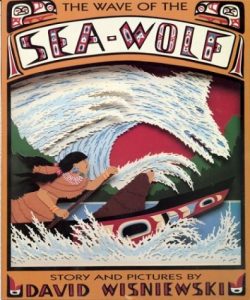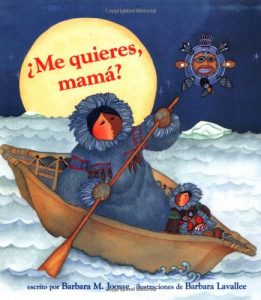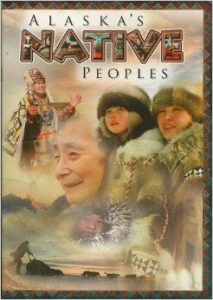 Beautiful glossy photographs and descriptions of the native people of the state of Alaska by Ken Graham.
Beautiful glossy photographs and descriptions of the native people of the state of Alaska by Ken Graham.
North America
The Wave Of The Sea-Wolf
Me Quieres, Mama?
Something From Nothing
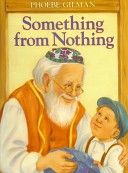
In this retelling of a traditional Jewish folktale, Joseph’s baby blanket is transformed into ever smaller items as he grows until there is nothing left–but then Joseph has an idea.
Jean Laffite and the Big Ol’ Whale
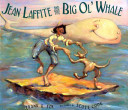
When a huge white whale gets stuck between the banks of the Mississippi River causing the water to stop flowing, Jean Laffite finds a way to get the river moving again.
Sure As Sunrise: Stories Of Bruh Rabbit and His Walkin’ Talkin’ Friends
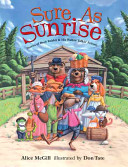
With the humor and wisdom of her North Carolina roots, Alice McGill shares the stories she remembers from her father, mother, grandmother, and neighbors. Her telling is as fresh as “a loaf of bread still warm from the ashes” as she brings to life the creatures that so fascinated her as a child: Bruh Rabbit, Sis Possum, Bruh Bear, and Bruh Fox. Illustrated with zest and warmth, these stories were passed on for generations and are, ultimately, a celebration of the human spirit. For as sure as sunrise, the cleverness of the small but sassy Bruh Rabbit shines through as he outwits the more powerful, again and again.
Aesop Accolades (Awards)
My Name Is María Isabel
The Last Doll/La última Muñeca
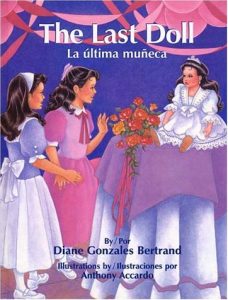 The beautiful, but old-fashioned, Sarita sadly watches as her shelf-mates are purchased by eager shoppers and taken home. She looks out through the dust-covered plastic of her box, and she worries that she will be the last one. Every day she preens and puts her best porcelain face forward, but every evening, she remains on the shelf.
The beautiful, but old-fashioned, Sarita sadly watches as her shelf-mates are purchased by eager shoppers and taken home. She looks out through the dust-covered plastic of her box, and she worries that she will be the last one. Every day she preens and puts her best porcelain face forward, but every evening, she remains on the shelf.
Finally one day, a tall man in a black mustache decides that she is perfect, and that she absolutely must be the last doll for his godchild, Teresa, on her quinceañera. Sarita’s alarm at still being last quickly shifts to pride when she realizes that sometimes people save the best for last.
The Navajo Year Walk Through Many Seasons
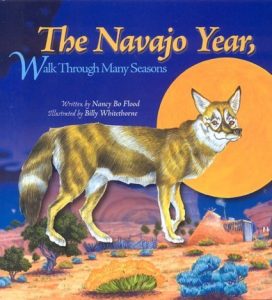 For the Navajo people, the new year begins in October, when summer meets winter. The Navajo Year, Walk Through Many Seasons follows the Navajo calendar, and provides poetic descriptions of the many sights, sounds, and activities associated with each month. In November, there are string games and stories; in April, planting of corn, beans, and squash; and in July, rodeos and monsoon rains. Follow Coyote through the year, and explore how the Navajos observe the rites and passages of each month.
For the Navajo people, the new year begins in October, when summer meets winter. The Navajo Year, Walk Through Many Seasons follows the Navajo calendar, and provides poetic descriptions of the many sights, sounds, and activities associated with each month. In November, there are string games and stories; in April, planting of corn, beans, and squash; and in July, rodeos and monsoon rains. Follow Coyote through the year, and explore how the Navajos observe the rites and passages of each month.
The Inuit Thought Of It: Amazing Arctic Innovations (We Thought Of It)
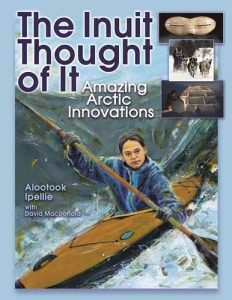 Dazzling inventions from the far north.Today’s Arctic communities have all the comforts of modern living. Yet the Inuit survived in this harsh landscape for hundreds of years with nothing but the land and their own ingenuity. Join authors Alootook Ipellie and David MacDonald as they explore the amazing innovations of traditional Inuit and how their ideas continue to echo around the world.Some inventions are still familiar to us: the one-person watercraft known as a kayak retains its Inuit name. Other innovations have been replaced by modern technology: slitted snow goggles protected Inuit eyes long before sunglasses arrived on the scene. And other ideas were surprisingly inspired: using human-shaped stone stacks (lnunnguat) to trick and trap caribou.Many more Inuit innovations are explored here, including: Dog sleds Kids’ stuff Shelter Food preservation Clothing Medicine.In all, more than 40 Inuit items and ideas are showcased through dramatic photos and captivating language. From how these objects were made, to their impact on contemporary culture, The Inuit Thought of It is a remarkable catalog of Inuit invention.
Dazzling inventions from the far north.Today’s Arctic communities have all the comforts of modern living. Yet the Inuit survived in this harsh landscape for hundreds of years with nothing but the land and their own ingenuity. Join authors Alootook Ipellie and David MacDonald as they explore the amazing innovations of traditional Inuit and how their ideas continue to echo around the world.Some inventions are still familiar to us: the one-person watercraft known as a kayak retains its Inuit name. Other innovations have been replaced by modern technology: slitted snow goggles protected Inuit eyes long before sunglasses arrived on the scene. And other ideas were surprisingly inspired: using human-shaped stone stacks (lnunnguat) to trick and trap caribou.Many more Inuit innovations are explored here, including: Dog sleds Kids’ stuff Shelter Food preservation Clothing Medicine.In all, more than 40 Inuit items and ideas are showcased through dramatic photos and captivating language. From how these objects were made, to their impact on contemporary culture, The Inuit Thought of It is a remarkable catalog of Inuit invention.

